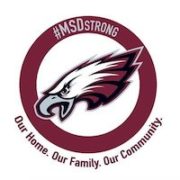But I don’t want to…
As school picks up again, children may find it difficult to transition from a summer environment back to an educational one, especially if they struggle with executive dysfunction. School requires children, teens, and young adults to be consistent with their task completion skills. Whether it be in school with classwork and cleaning up after yourself or at home with homework and chores, following through with tasks is important for students. Although they may be good at initiating them, actually finishing them can be hard for some, especially those with neurodivergent traits. They may get distracted, bored, or overwhelmed when trying to finish whatever task they need to complete, so they may begin to push their responsibilities off as a result. Yet, as they continue to do that, more and more of the tasks that need to get done begin to pile up, causing them to become more anxious, depressed and overwhelmed as it all becomes too much to finish, so eventually they begin to avoid their responsibilities altogether.
This cycle can cause more problems than just falling behind in school. It can cause other issues such as anxiety, depression, isolation, and so much more, which is why making sure that children, teens, and young adults have developed executive functioning skills, such as task completion, is so important. At the Support for Students Growth Center, we provide the social, behavioral, emotional, and executive functioning skills children, teens, young adults, and their families need for a happy and successful life in and out of school settings. Our team of professionals offers individualized and family coaching/counseling and social skills groups to help teach skills such as how to actively complete tasks to ensure parents do not have to worry that their kids will be unable to be the best they can be in and out of school setting on their own. So, if your child is struggling with skills like the ones listed above and much more, the SSGC is equipped with the tools to help.
Click here and call now to schedule your FREE 20-minute individualized screening- $150 value
Dr. Eric J. Nach, Ph.D., M.Ed., A.S.D.C., is a Developmental and Behavioral Specialist who specializes in Autism, ADHD and related disorders. Dr. Nach is the founder of the Support for Students Growth Center and College Life Skills Program where he and his team of professional’s help develop the Emotional Maturity, Executive Functioning, Life Skill and Social Abilities of children, teens, young adults and college students and those high school students preparing for college.


